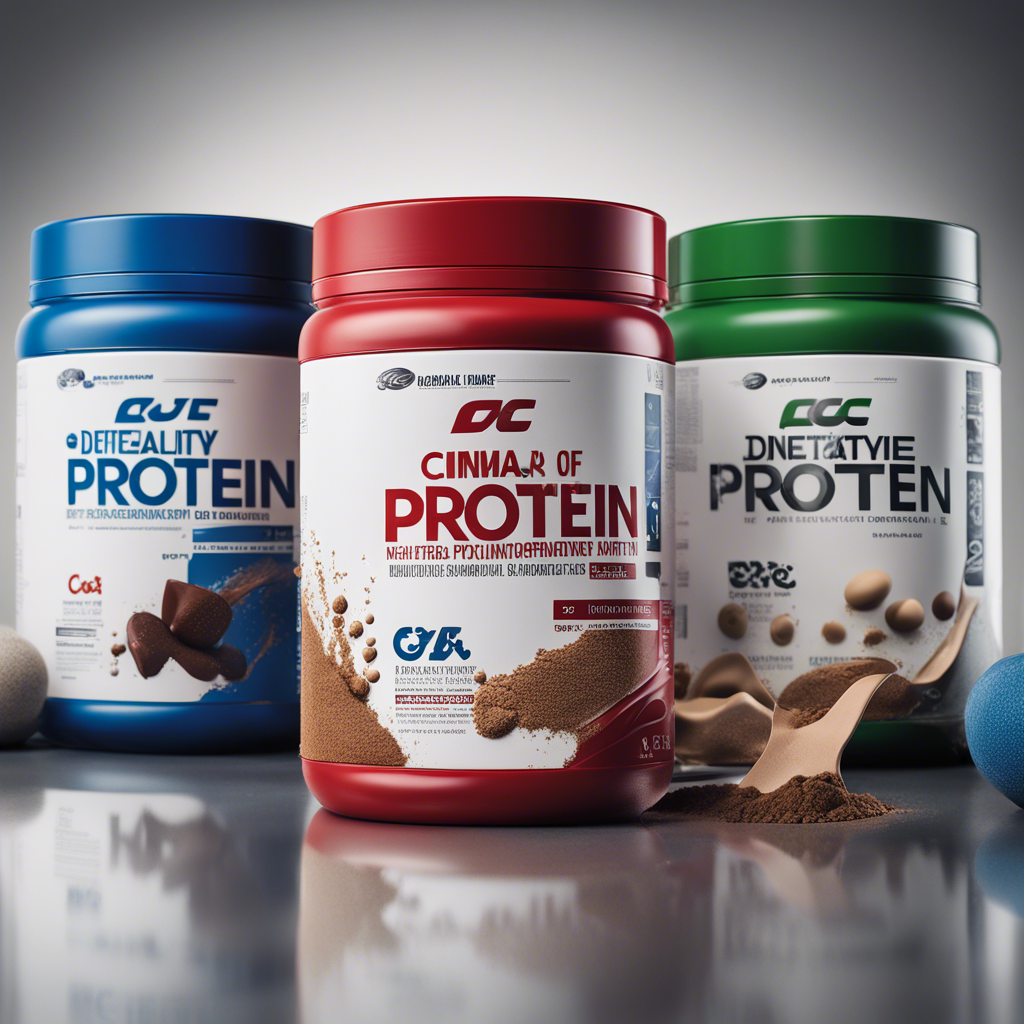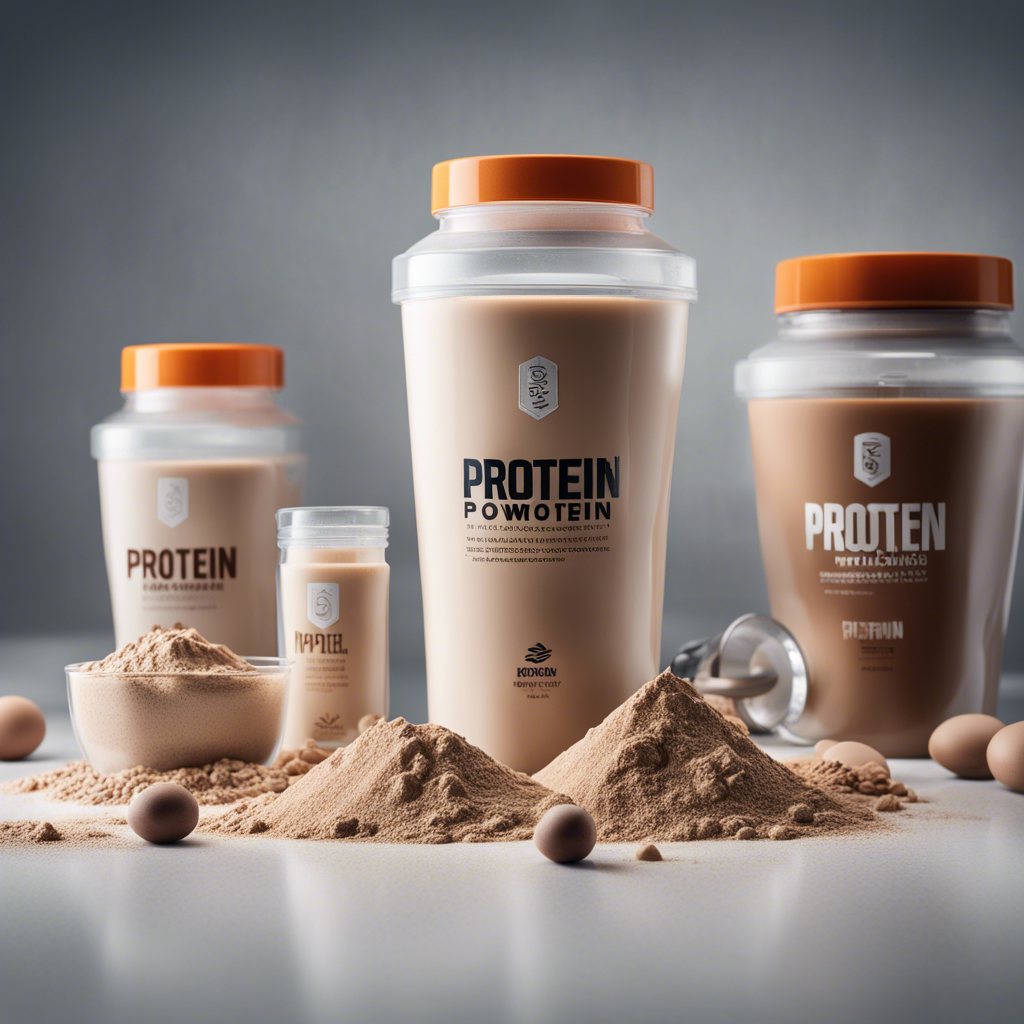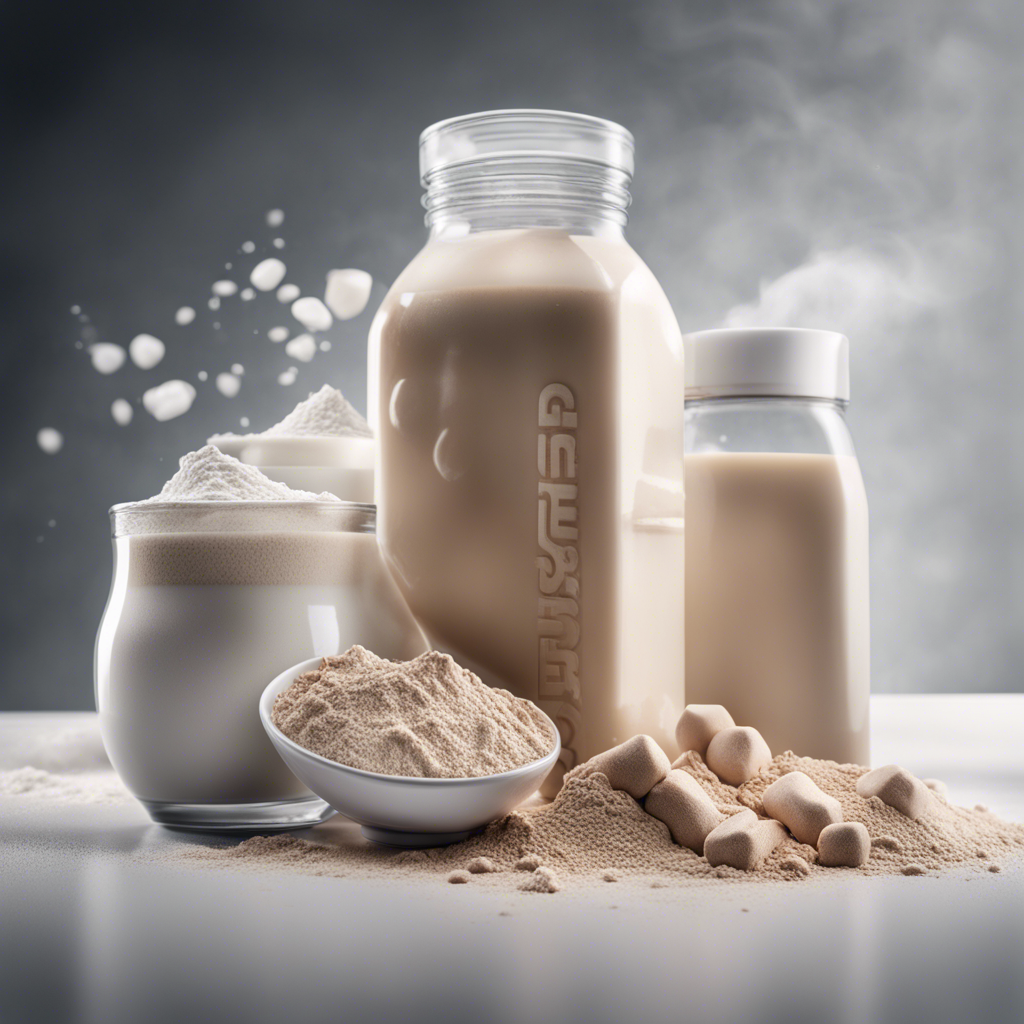Top 3 Protein Powders for Lactose-Intolerant Athletes
As an athlete, maximizing performance, recovery, and muscle growth often involves a carefully planned supplement regimen. Yet, for individuals with lactose intolerance, finding the right protein powder can be particularly challenging. The quest for high-quality, lactose-free protein supplements is crucial to both meet nutritional needs and optimize physical results. Fortunately, the market for plant-based and other non-dairy protein powders is booming, providing athletes with effective alternatives.

Lactose intolerance affects a significant portion of the population, compelling athletes to seek supplements that do not exacerbate symptoms. Whey protein, a staple in fitness regimens, is traditionally derived from dairy sources. Thus, lactose-intolerant athletes need alternatives that ensure they’re not left behind in their muscle-building endeavors. This article delves into the best protein powder options for those who need to avoid dairy, categorizing them based on their nutritional profile and effectiveness. We will explore these alternative protein sources to help you bolster your supplement stack for muscle gain, minus the digestive discomfort.
1. Pea Protein Powder
Nutritional Profile and Benefits
Pea protein powder is derived from yellow split peas, making it a 100% plant-based option suitable for lactose-intolerant athletes. It’s rich in essential amino acids, specifically boasting a high concentration of branched-chain amino acids (BCAAs), which are crucial for muscle repair and growth. The powder’s complete amino acid profile makes it a competitive alternative to traditional whey protein. Moreover, it is low in carbs and fats, making it an ideal choice for those adhering to a macronutrient-specific diet.
Practical Applications
Incorporating pea protein into your daily regimen is simple. It mixes well with water and plant-based milk, serving as a post-workout shake or a meal component. Pea protein’s mildly earthy flavor blends seamlessly into smoothies, offering versatility for athletes who regularly experiment with different supplement recipes. By employing pea protein, athletes can enhance their dietary plans without sacrificing flavor or nutritional content.
Case Study: Pea Protein for Muscle Gain
Many success stories highlight athletes who have turned to pea protein with excellent results. For instance, a study published in the Journal of the International Society of Sports Nutrition demonstrated that pea protein can produce comparable muscle thickness changes to whey protein, making it a viable alternative for muscle gain. For lactose-intolerant athletes striving for muscle mass, pea protein provides a safe and effective route without the dairy-induced discomfort.
2. Brown Rice Protein Powder
Nutritional Profile and Benefits
Brown rice protein powder is another plant-based protein that caters to lactose-intolerant athletes. It’s hypoallergenic and easily digestible, making it suitable for those with multiple food sensitivities. While it lacks a complete amino acid profile on its own, when combined with complementary proteins like pea protein, it provides all essential amino acids.
Practical Applications
Brown rice protein is particularly revered for its utility in baking and cooking. It can fortify protein content in pancakes, muffins, and energy bars post-training. The slightly nutty flavor enriches savory dishes and snacks, providing athletes with nutritious halts during rigorous routines.
Case Study: Combining with Other Proteins
To enhance protein intake while catering to dietary restrictions, athletes often blend brown rice protein with other supplements. For example, combining brown rice and pea protein results in a complete protein profile, ideal for muscle repair and overall athletic performance. This strategy enables customized, lactose-free protein supplementation, optimizing results for both strength and endurance athletes.
3. Hemp Protein Powder
Nutritional Profile and Benefits
Hemp protein powder is a powerhouse of essential fatty acids and fiber, boasting an array of nutrients beyond just protein. A complete protein itself, hemp contains edestin and albumin, proteins that are easily digestible and readily absorbed. Hemp’s omega-3 and omega-6 fatty acids balance contribute to anti-inflammatory properties, which are beneficial for recovery and joint health in athletes.
Practical Applications
To incorporate hemp protein, athletes can add it to their recovery shakes or sprinkle it over cereal or oatmeal. It aids in muscle recovery and supports cardiovascular health, an added benefit stemming from its natural, wholesome composition. Unlike other powders, hemp protein retains more exceptional nutrient density, making it a multipurpose addition to an athlete’s diet.
Environmental Impact and Sustainability
Another compelling aspect of hemp protein is its sustainability. Hemp plants are environmentally friendly, requiring minimal water and no pesticides. For the eco-conscious athlete, this makes hemp a preferred choice. Beyond personal health, choosing hemp protein contributes positively to environmental conservation efforts, allowing athletes to exercise social responsibility alongside physical prowess.

Frequently Asked Questions
What are the symptoms of lactose intolerance?
Lactose intolerance commonly manifests through digestive symptoms such as bloating, diarrhea, and gas after consuming dairy products. Symptoms occur due to the body’s inability to digest lactose, a sugar found in milk. For athletes, these symptoms can hinder performance and recovery, therefore identifying and addressing lactose intolerance is crucial to maintain optimal health.
How can athletes identify the best protein powder for lactose intolerance?
Athletes should seek lactose-free or plant-based protein powders to avoid adverse digestive reactions. It’s essential to read labels carefully and select products specifically labeled as dairy-free. Consulting with a nutritionist can also provide personalized recommendations based on individual dietary needs and fitness goals.
Can plant-based protein powders fulfill an athlete’s protein needs?
Yes, plant-based protein powders can effectively meet the protein requirements of athletes. By consuming a variety of sources such as pea, brown rice, and hemp protein, athletes can secure a full spectrum of essential amino acids necessary for muscle growth and recovery. Studies have shown plant-based powders, when used correctly, to be as effective as animal-derived proteins for muscle gain.
Are there any side effects of using lactose-free protein powders?
Lactose-free protein powders are generally safe for most individuals. However, some people may experience digestive discomfort with certain plant-based products if they are new to these supplements or have underlying digestive issues. Starting with smaller servings and gradually increasing can help in acclimatizing the digestive system.
How do lactose-free protein options compare in cost to traditional whey protein?
The cost of lactose-free protein powders can vary, often being slightly higher due to the processing involved in removing lactose or using specialty plant ingredients. However, the health benefits and avoidance of discomfort often outweigh the price difference for lactose-intolerant athletes. Sharing bulk purchases or seeking discounts can help mitigate these costs.
Conclusion
For lactose-intolerant athletes, having access to effective, dairy-free protein supplements is not just a convenience but a necessity. Pea, brown rice, and hemp protein powders stand out as superior choices, each bringing unique nutritional benefits that cater to a range of athletic needs. Whether it’s for muscle gain, recovery, or maintaining lactose-free mobility within a supplement stack, these protein options provide both efficacy and peace of mind.
The journey of fitness and nutrition is personal, and ensuring that dietary choices align with health conditions like lactose intolerance is crucial for long-term success. As the demand for plant-based protein powders grows, so does the diversity and quality of available products. Embracing these lactose-free protein offerings can lead to enhanced athletic performance and overall well-being.
Congratulations to those adapting and thriving with lactose intolerance—enjoy the benefits of leading a proactive, fit lifestyle with the right protein choices. Remember, thoughtful selection of protein supplements not only enhances performance but also contributes to more sustainable health practices.
Suggested Video Topics
- The Benefits of Plant-Based Protein for Lactose-Intolerant Athletes
- How to Build a Supplement Stack for Muscle Gain Without Dairy
- Comparing Nutritional Profiles: Whey Protein vs. Plant-Based Alternatives

